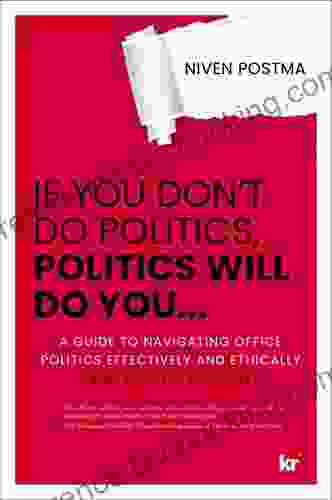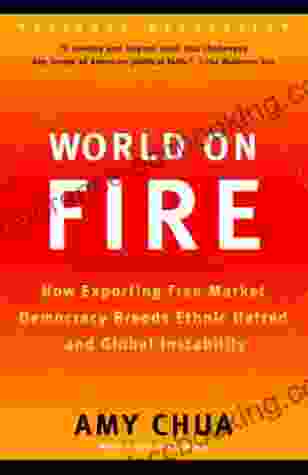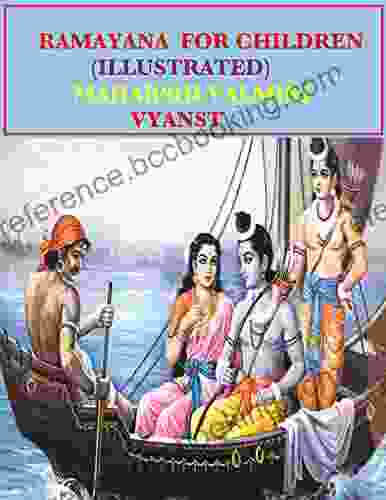How Exporting Free Market Democracy Breeds Ethnic Hatred And Global Instability

In the aftermath of the Cold War, the United States emerged as the sole superpower, spearheading a global agenda centered on promoting free market democracy around the world. This ideological crusade, often disguised under the guise of humanitarian intervention or nation-building, has left a trail of profound and unintended consequences, exacerbating ethnic hatred and fueling global instability.
The imposition of free market democracy onto diverse societies, often with little regard for local context or historical legacies, has created fertile ground for ethnic conflict. The reductionist mindset that underlies this ideology assumes that all societies are universally compatible with Western-style political and economic systems. However, societies across the globe exhibit profound cultural, historical, and religious differences that cannot be simply erased or homogenized.
The imposition of a one-size-fits-all model can disrupt existing social and political structures, marginalizing certain groups and empowering others. This can lead to the rise of ethnic nationalism, as marginalized groups seek to assert their identity and autonomy in the face of perceived threats to their way of life.
4.5 out of 5
| Language | : | English |
| File size | : | 641 KB |
| Text-to-Speech | : | Enabled |
| Screen Reader | : | Supported |
| Word Wise | : | Enabled |
| Print length | : | 368 pages |
Free market democracy often goes hand in hand with the implementation of neoliberal economic policies, which emphasize austerity, privatization, and deregulation. While these policies may stimulate economic growth in the short term, they also exacerbate social inequality and create conditions conducive to ethnic conflict.
The erosion of public services, the dismantling of social safety nets, and the concentration of wealth in the hands of a small elite can lead to widespread resentment and frustration. Ethnic cleavages can become convenient targets for scapegoating, as marginalized groups are blamed for economic woes and social problems.
The promotion of free market democracy is often accompanied by a subtle but pervasive form of cultural imperialism. Western values, beliefs, and lifestyles are presented as superior to others, leading to a loss of cultural identity and self-esteem among non-Western societies.
This can create a sense of alienation and disconnection, particularly among young people who are bombarded with Western media and culture. The erosion of traditional values and cultural practices can contribute to social fragmentation and the rise of extremist ideologies that offer simple and scapegoated solutions to complex problems.
In many cases, the export of free market democracy has been a thinly veiled form of neocolonialism. Western powers have used economic and military leverage to gain access to strategic resources and markets in developing countries. This has often led to the exploitation of local populations and the fueling of ethnic conflict.
For example, in the Democratic Republic of the Congo, the extraction of valuable minerals has been linked to the rise of ethnic violence and the funding of armed groups. Similarly, in the Middle East, the exploitation of oil and gas resources has exacerbated sectarian divisions and fueled regional instability.
The promotion of free market democracy has also coincided with the erosion of human rights and the rule of law in many countries. Authoritarian governments have seized upon the pretext of fighting terrorism or promoting economic development to suppress dissent and consolidate their power.
Ethnic minorities and other marginalized groups are often the first victims of such repression. They may be subjected to discrimination, persecution, or even genocide. The erosion of the rule of law undermines the foundations of social cohesion and creates a climate of fear and mistrust.
Addressing the challenges posed by the export of free market democracy requires a multifaceted approach that emphasizes dialogue, collaboration, and respect for diversity.
Inclusive Dialogue: Open and inclusive dialogue is essential for addressing ethnic tensions and building trust between different groups. This requires creating spaces where people can express their grievances and work together to find solutions.
Collaborative Governance: Collaborative governance models that involve diverse groups in decision-making processes can help to mitigate ethnic conflict. By sharing power and resources, communities can foster a sense of shared ownership and responsibility.
Support for Local Institutions: Strengthening local institutions, such as civil society organizations, community groups, and traditional authorities, can help to resolve conflicts peacefully and promote social cohesion. These institutions can provide a platform for dialogue, mediation, and support for marginalized groups.
Respect for Diversity: Recognizing and respecting the diversity of cultures, religions, and ethnicities is crucial for building inclusive societies. This requires valuing different perspectives and promoting policies that protect minority rights and promote cultural exchange.
Address Inequality and Resource Exploitation: Addressing economic inequality and resource exploitation is essential for mitigating ethnic conflict. This requires implementing equitable economic policies, promoting social justice, and ensuring that the benefits of development are shared by all members of society.
The export of free market democracy has had a profoundly destabilizing impact on the world, exacerbating ethnic hatred, fueling global instability, and undermining human rights. By imposing a flawed model, creating economic inequality, promoting cultural imperialism, engaging in neocolonialism, and eroding the rule of law, this ideology has sown the seeds of conflict and violence.
Addressing these challenges requires a shift away from a one-size-fits-all approach and towards inclusive dialogue, collaborative governance, support for local institutions, respect for diversity, and addressing inequality and resource exploitation. Only by embracing these principles can we hope to build societies that are truly just, peaceful, and stable.
4.5 out of 5
| Language | : | English |
| File size | : | 641 KB |
| Text-to-Speech | : | Enabled |
| Screen Reader | : | Supported |
| Word Wise | : | Enabled |
| Print length | : | 368 pages |
Do you want to contribute by writing guest posts on this blog?
Please contact us and send us a resume of previous articles that you have written.
 Book
Book Novel
Novel Page
Page Chapter
Chapter Text
Text Story
Story Genre
Genre Reader
Reader Library
Library Paperback
Paperback E-book
E-book Magazine
Magazine Newspaper
Newspaper Paragraph
Paragraph Sentence
Sentence Bookmark
Bookmark Shelf
Shelf Glossary
Glossary Bibliography
Bibliography Foreword
Foreword Preface
Preface Synopsis
Synopsis Annotation
Annotation Footnote
Footnote Manuscript
Manuscript Scroll
Scroll Codex
Codex Tome
Tome Bestseller
Bestseller Classics
Classics Library card
Library card Narrative
Narrative Biography
Biography Autobiography
Autobiography Memoir
Memoir Reference
Reference Encyclopedia
Encyclopedia Angelique V Nixon
Angelique V Nixon Andrew Bushard
Andrew Bushard Andy Bull
Andy Bull Angela May
Angela May Ana Sortun
Ana Sortun Allan Haley
Allan Haley Alma Hammond
Alma Hammond Andy Dowsett
Andy Dowsett Ali Bey
Ali Bey Andrius Jac
Andrius Jac Alison Edwards
Alison Edwards Amrit Pal Tiwana
Amrit Pal Tiwana Angel Burns
Angel Burns Andrew F Hayes
Andrew F Hayes Andrea Wachter
Andrea Wachter Ana And Jack Hicks
Ana And Jack Hicks Andy Paul
Andy Paul Andrew Mayne
Andrew Mayne Alicia Puglionesi
Alicia Puglionesi Andrew Norman
Andrew Norman
Light bulbAdvertise smarter! Our strategic ad space ensures maximum exposure. Reserve your spot today!

 Branden SimmonsIn Morocco, Tripoli, Cyprus, Egypt, Arabia, Syria, and Turkey: A Journey into...
Branden SimmonsIn Morocco, Tripoli, Cyprus, Egypt, Arabia, Syria, and Turkey: A Journey into...
 Haruki MurakamiMy Art and Skill of Karate Ryukyu Bugei: Unleash the Power and Wisdom of...
Haruki MurakamiMy Art and Skill of Karate Ryukyu Bugei: Unleash the Power and Wisdom of... Colton CarterFollow ·11.6k
Colton CarterFollow ·11.6k Edward BellFollow ·14.5k
Edward BellFollow ·14.5k Cooper BellFollow ·5.4k
Cooper BellFollow ·5.4k Ralph TurnerFollow ·18k
Ralph TurnerFollow ·18k Leo MitchellFollow ·18.7k
Leo MitchellFollow ·18.7k Dallas TurnerFollow ·8.7k
Dallas TurnerFollow ·8.7k Ken FollettFollow ·4.1k
Ken FollettFollow ·4.1k Fletcher MitchellFollow ·10.6k
Fletcher MitchellFollow ·10.6k

 Julio Cortázar
Julio CortázarIf You Don't Do Politics, Politics Will Do You
Uncover the Hidden Power in Everyday Life In...

 Ivan Turner
Ivan TurnerThe Edge of Physics: Unraveling the Extraordinary...
What is the nature of...

 Diego Blair
Diego BlairAn Intuitive Guide For Using And Interpreting Linear...
Linear models...

 Oscar Wilde
Oscar WildeThrough Two Doors At Once: Unveiling the Enigmatic World...
Prepare to delve into the captivating realm of...

 Darrell Powell
Darrell PowellWomen Athletes in History: An Inspiring Gift for Teenage...
Unveiling the Extraordinary Stories of Female...
4.5 out of 5
| Language | : | English |
| File size | : | 641 KB |
| Text-to-Speech | : | Enabled |
| Screen Reader | : | Supported |
| Word Wise | : | Enabled |
| Print length | : | 368 pages |










